15 Universiti Malaya Students Win Platinum Awards at Malaysia’s Inaugural UM UG iFEST 2025
- UM Research
- Jul 21, 2025
- 10 min read
Updated: Aug 13, 2025

Fifteen outstanding Universiti Malaya (UM) final-year students received Platinum Awards as the top five finalists across various categories at Malaysia’s first-ever Undergraduate Ideas Festival (UM UG iFEST 2025). Held over three days starting June 24, the event showcased more than 2,600 final-year projects from 14 faculties and two academies, evaluated by 300 industry judges competing for cash prizes totalling RM22,500.
The festival served as a premier platform to highlight student innovation, research, and talent spanning Science & Technology, Social Sciences, and Health Sciences.
Science & Technology Category Highlights
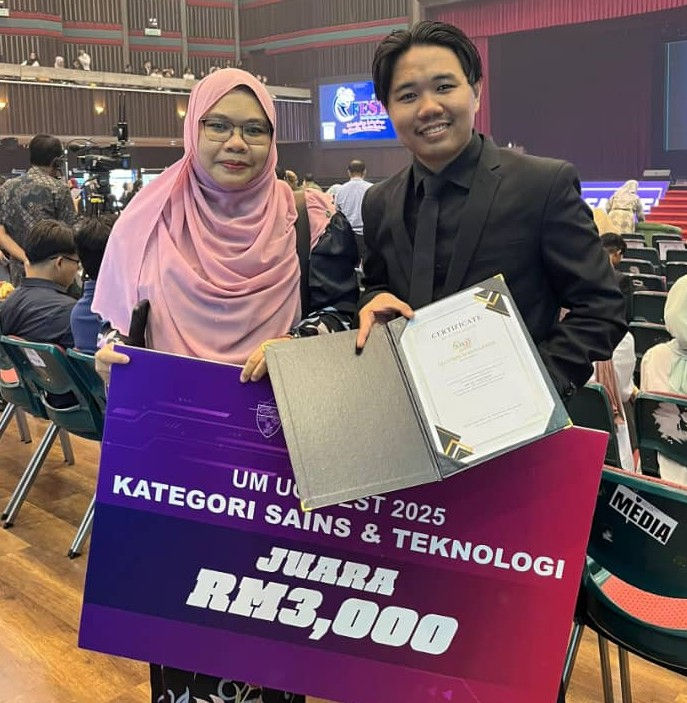
Janting Anak Tingom, from the Faculty of Engineering and the winner of the Science and Technology category, presented an innovative project focused on repurposing oil palm waste for sustainable road construction.
His research explores the use of Palm Oil Clinker (POC) powder—a byproduct of the palm oil industry—as an additive in Warm Mix Asphalt (WMA) to develop eco-friendly road materials. Janting conducted extensive testing to determine whether this method could reduce energy consumption, lower pollution, and maintain high road quality, all while minimising environmental impact. His findings highlight a groundbreaking approach to making road pavement both more sustainable and cost-efficient.


Chai Li Chee, a final-year student from the Faculty of Computer Science and Information Technology, has developed an intelligent testing assistant named KeysightGPT. This AI-driven tool integrates with Keysight’s PathWave Test Executive for Manufacturing (PTEM) and allows engineers to type test requirements in natural, everyday language. The system then automatically generates the appropriate SCPI (Standard Commands for Programmable Instruments) commands, which are industry-standard instructions used to control test and measurement instruments, reducing the need for manual scripting.
By leveraging a fine-tuned language model trained on Keysight-specific testing data, KeysightGPT improves both accuracy and relevance. The tool significantly streamlines the test development process—saving time, minimising errors, and making advanced testing systems more accessible, even to users with limited programming experience.


Breaviin A/L Apalasamy of the Faculty of Engineering is making solar power more accessible through his research.
His research focuses on improving nickel oxide (NiOx), a cost-effective material crucial for the efficient movement of electrical charges in perovskite solar cells.
Nickel oxide is less expensive than other materials used in solar cells, so improving its performance means we can produce high-quality solar panels at a lower cost. Ultimately, this research provides valuable insights for other scientists. It demonstrates how altering the material can enhance solar cells, potentially leading to even more advanced technology in the future.


Ammar Abu Bakar, also from the Faculty of Engineering, addressed an issue with blurry QR codes printed on special films used to verify the freshness of food. When these QR codes are scanned quickly or under shaky conditions, they often become blurry and difficult to read, which can lead to errors in tracking food freshness.
The study developed an AI model called DeblurGAN, which can take a blurry QR code image and restore it to a clear, sharp version that can be easily read by scanners. This technology is significant because it enables smart food packaging systems to function more effectively in real-time, thereby reducing errors and food waste. This facilitates safer and more accurate monitoring of food freshness throughout the supply chain.

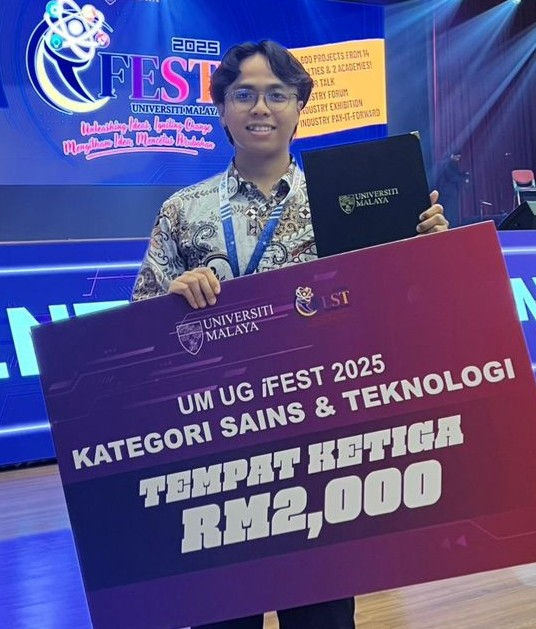
Finally, from the Science & Technology category, the Platinum award finalist and third prize winner, Muhammad Aqlan Zhafran Bin Nor Azli from the Faculty of Science, has explored the antioxidant properties of a natural skincare formula made from three traditional medicinal herbs: Centella asiatica (Pegaga), Rhodomyrtus tomentosa (Kemunting), and Kaempferia galanga (Cekur). The research validates the traditional use of these herbs for safer, natural, and antioxidant-rich skincare alternatives. It can help to support the local herbal industry by encouraging the use of plant resources.

Health Sciences Category Highlights

The winner of this category, Tang Jiun Yoong, from the Faculty of Pharmacy, studied how dengue fever can be treated. This serious disease spreads rapidly in warm regions, but there are few effective medicines or vaccines to combat it. Tang’s study created new chemical compounds called sulphonamide chalcones by combining two types of molecules known to have antiviral effects. Tang created eight different versions of these compounds in the lab and verified their properties using specialised tests to ensure they were produced correctly. Some compounds required additional cleaning to remove impurities. Still, overall, the study demonstrated that it’s possible to synthesise these new compounds, which could become useful medicines for treating dengue in the future.

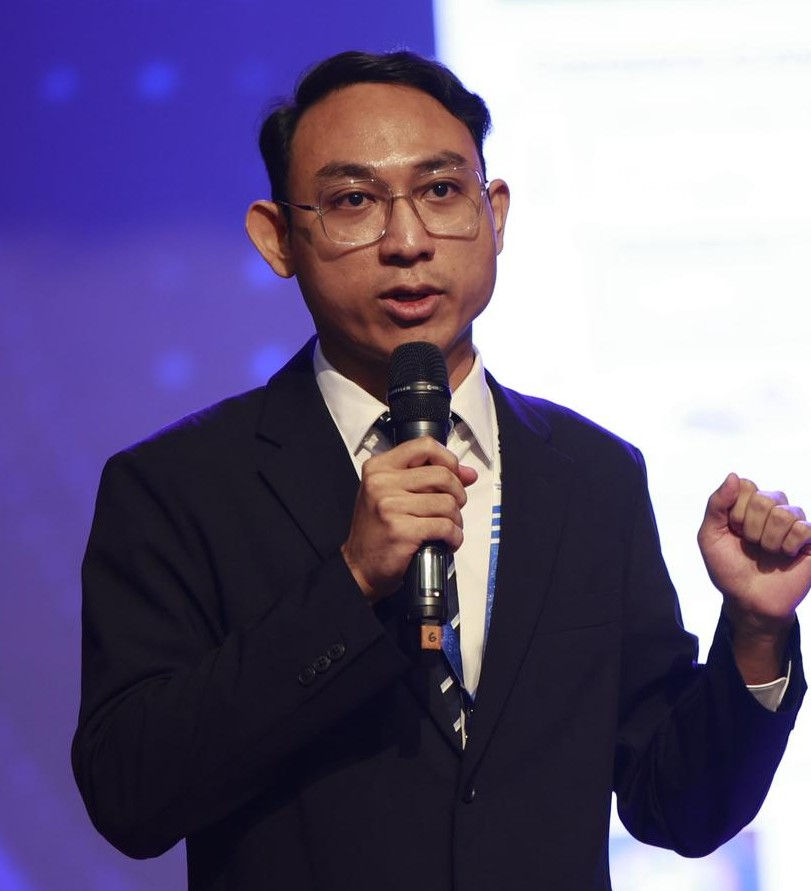
Muhammad Imran bin Yusop from the Faculty of Medicine examined how a specialised heat treatment, Infrared-C Heat Therapy (ICHT), can help alleviate health issues associated with obesity by testing it on rats. Obesity can lead to issues like high blood sugar and poor blood vessel function, which can cause serious diseases. The results showed that ICHT helped the rats gain less weight and lowered their fasting blood sugar levels. This means ICHT might be a useful, medicine-free way to prevent or improve early health problems caused by obesity. In short, this heat therapy can help people stay healthier by improving metabolism and blood flow, without the need for drugs. More research is needed to confirm these benefits, especially for obese individuals.

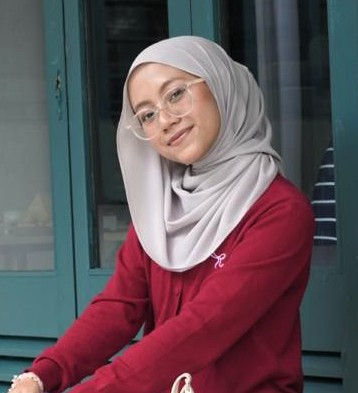
The Faculty of Medicine student, Nik Asha Qistina Binti Nik Arman, researched the properties of the Gac fruit, which contains natural compounds that may fight cancer.
Nik Asha tested extracts from the fruit’s aril (the fleshy part) and seeds on colorectal cancer cells. She found that the aril extract was very effective at killing cancer cells while leaving healthy cells unharmed, indicating that it targets cancer specifically. The seed extract had a weaker effect. Further analysis found proteins in the aril that can help stop cancer growth and spread. This suggests that Gac fruit, especially its aril, may be a natural and safer option for treating colorectal cancer.


Abdul Raziq Bin Md Norazni @ Md Yasin from the Faculty of Dentistry studied and aimed to assess the mental health of parents with children who have cleft lip and palate (CLP) using the Depression, Anxiety and Stress Scale (DASS-21) and examined its correlation with socio-demographic factors. This research fills the gap where there is a lack of studies in evaluating the mental health of parents with children with CLP. The findings of this research concluded that most parents reported normal levels of stress, anxiety and depression; however, there is a notable proportion of parents experiencing higher levels of depression and anxiety. In addition, mothers reported higher levels of distress. Therefore, structured psychological assessments and supportive community interventions must be reinforced.


The Faculty of Sports and Exercise Science student, Jonathan Lim Jing Wei, studied how to improve jump performance for badminton players. This study tested whether warming up the knee with special heated kneecuffs (SoftSnug Heatpulse) could improve jump performance. By comparing jumps with and without heating, the results showed no significant change in jump height or speed; however, there was a noticeable improvement in the force players used to push off the ground, which could potentially enhance performance. The heating likely helped the muscles activate more effectively without causing fatigue. This suggests that warming the knee in this manner may be a suitable warm-up for sports that require quick, powerful leg movements; however, further research involving more players is needed.

Social Sciences Category Highlights
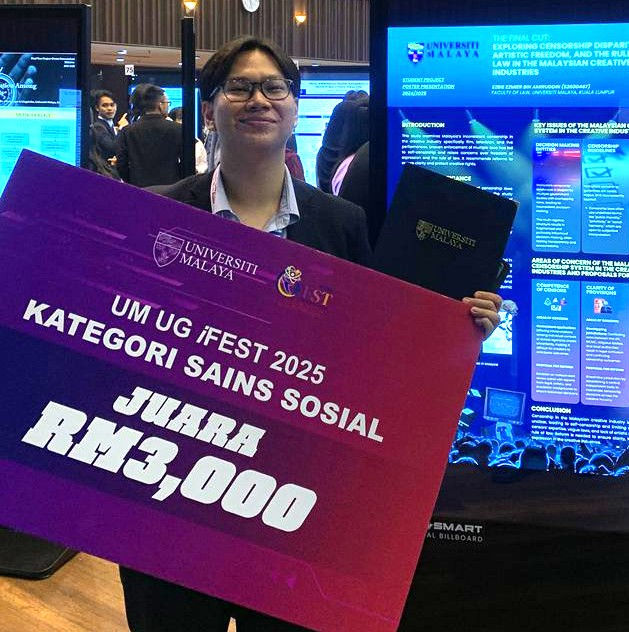
The winner of this category, Ezrie Ezmier Amiruddin from the Faculty of Law, studied the Malaysian government’s inconsistent censorship practices within the creative industry, which profoundly challenge creative professionals and restrict artistic expression. Although Malaysia aims to be a major creative content hub in Southeast Asia, the unclear and inconsistent enforcement of various laws causes confusion and fear among creators. These censorship practices also raise concerns about possible violations of constitutional rights, such as freedom of expression, equality under the law and the rule of law. Ezrie’s study examines how these rules are applied to films, TV shows, and live performances to determine if they are being enforced fairly.

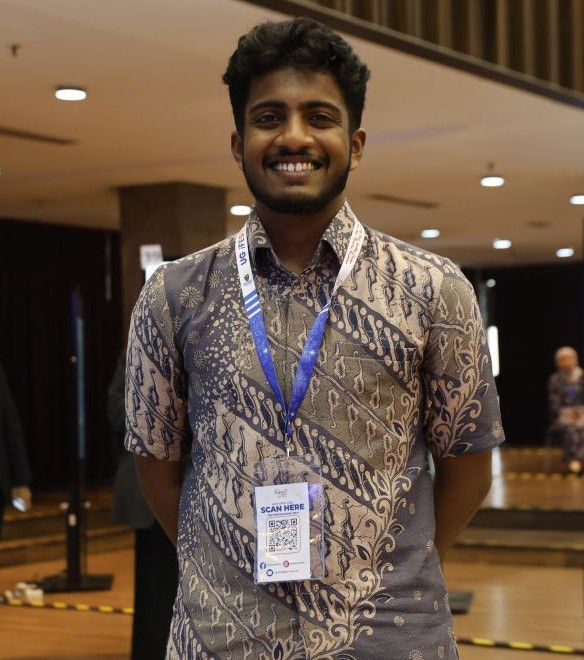
Advaith Ramakrishnan Iyer from the Faculty of Business and Economics presented his research on the widening climate finance gap in Southeast Asia. His study highlighted that, while the region is highly vulnerable to climate change, it currently invests far below the required USD 1.6 trillion annually needed for a successful transition to low-carbon and climate-resilient economies.
The research explored financial tools such as green bonds, carbon pricing, and public–private partnerships (PPP’s), evaluating how these mechanisms are used and the areas where they fall short.
Advaith found that climate finance remains largely government-driven, with limited private sector involvement, and that policies across the region are fragmented and inconsistent.
The study calls for stronger regional cooperation and more inclusive financial access for MSMEs, and standardised green finance frameworks to boost investor confidence and climate resilience.

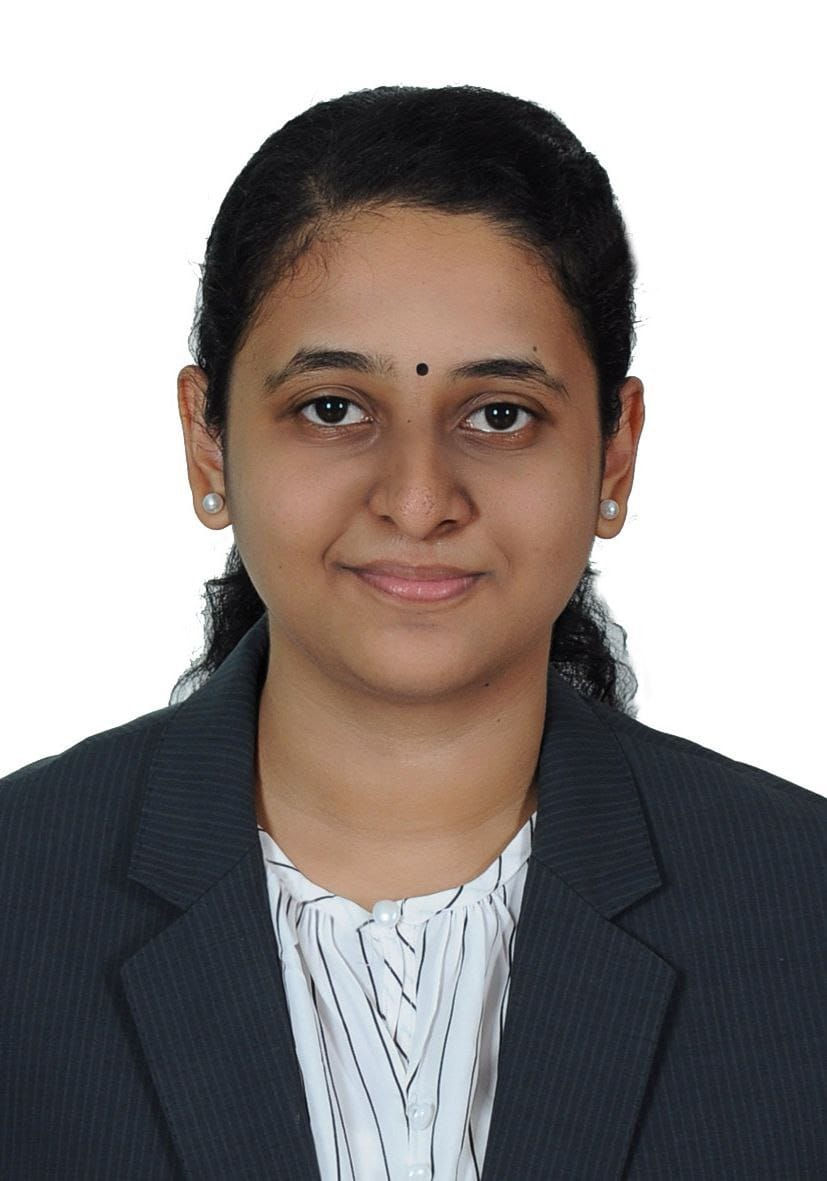
From the Faculty of Arts and Social Sciences, Thanusha A/P Rames‘s study focused on the history of how, after independence, Malaysia faced economic imbalances between regions and ethnic groups, which led to the May 13, 1969 Incident.
To address this issue, the government introduced the New Economic Policy (NEP) and established the State Economic Development Corporations (PKEN). This study looked at Perbadanan Johor (JCorp), formerly known as PKENJ, and its role in Johor’s socio-economic development. Using reports and archives, the study found that JCorp contributes to agriculture, food services, industrial growth, and job creation. It also supports health, community welfare, and sports activities. JCorp plays an important role in boosting Johor’s economy and social well-being, aligning with NEP goals.

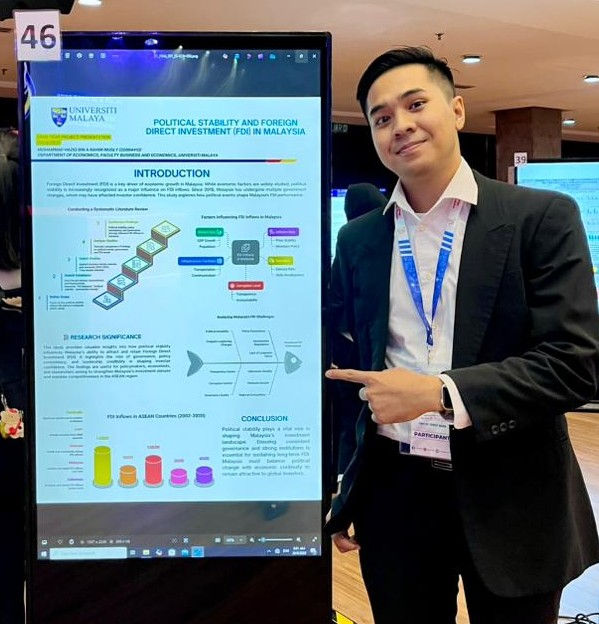
Mohammad Haziq Bin A. Rahim Musly, a final-year student at the Faculty of Business and Economics, has conducted an insightful review on the relationship between political stability and Malaysia’s foreign direct investment (FDI) trends, focusing on the period from 2010 to 2025.
His analysis underscores that while infrastructure development and market size remain key drivers of economic growth, episodes of political unrest between 2018 and 2022 introduced considerable uncertainty among foreign investors.
Interestingly, Malaysia recorded a surge in FDI during 2021–2022, largely driven by global supply chain realignments and the country’s strategic positioning in the region. Since the establishment of the Unity Government in late 2022, Malaysia has experienced a more stable political environment, which has in turn helped sustain investor confidence and attract consistent FDI inflows.
Haziq’s findings reinforce the critical role of political stability, transparent governance, and prudent economic policymaking in ensuring Malaysia remains a competitive and appealing destination for global investors.

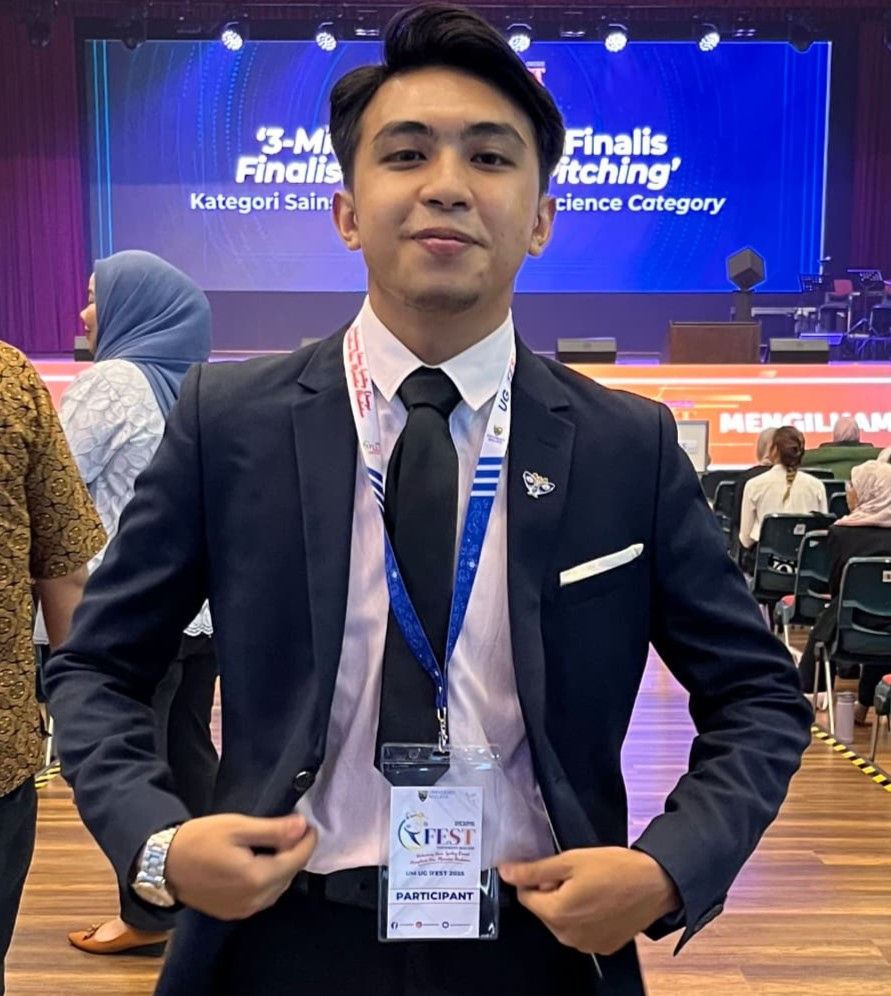
And finally, Muhammad Faisal Bin Zubir from the Faculty of Arts and Social Sciences conducted a study regarding the migration of the Banjar community from Kalimantan to Bagan Serai, Perak, between the late 19th century and 1941.
Driven by political and economic pressures at home and opportunities in agriculture, the Banjar settled in Bagan Serai, forming a community while preserving their culture by blending with local Malays. They made significant contributions to the local economy, particularly in rice farming. Using qualitative methods, the study highlights the impact of Banjar migration on Perak’s social and economic development.

Unleashing Ideas, Igniting Change
The theme of UM UG iFEST 2025, “Unleashing Ideas, Igniting Change,” inspires students not only to learn but also to innovate, challenge the status quo, and contribute meaningful knowledge for the benefit of society. More than just showcasing projects, the festival serves as a crucial bridge between academia and industry, helping to close the gap between theory and real-world practice. This collaboration is essential for strengthening Malaysia’s innovation ecosystem and equipping future generations to compete on a global scale.
Congratulations once again to all the award recipients for their outstanding achievements!
If you are interested in learning more about any of the research projects mentioned above, please do not hesitate to contact us at umresearch@um.edu.my.
We look forward to engaging with you!
Author:
Nurhazrin Zanzabir, Assistant Administrative Officer, Universiti Malaya
Photo credit:
A special thank you to the Planitum Awards recipients for the photos!


Comments